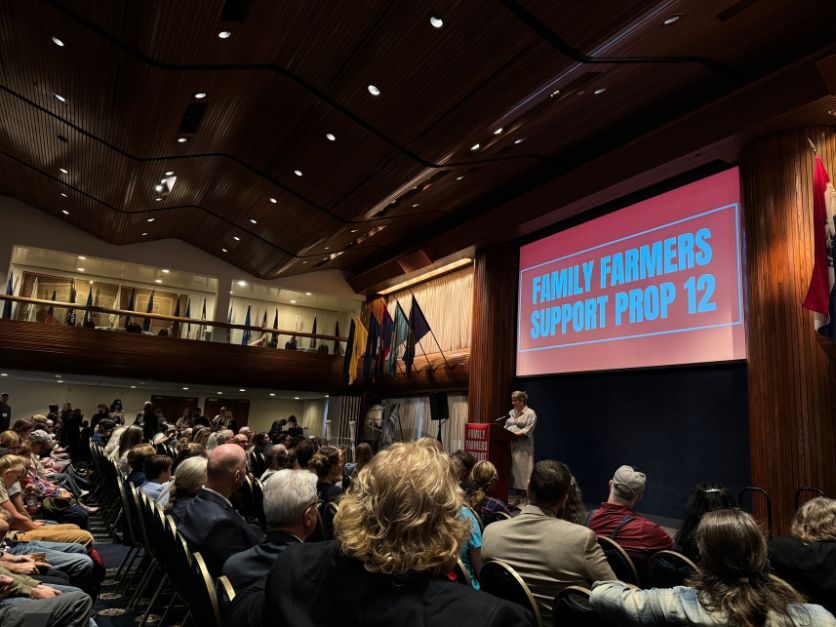Key Takeaways
- A coalition of farmers and food companies has formed the American Meat Producers Association to support state animal welfare laws.
- The AMPA opposes efforts to federalize regulations, claiming it would harm small farms and consumer choices.
- Proposition 12, upheld by the Supreme Court, mandates pork sold in California to come from crate-free systems.
Formation of New Association
A coalition of farmers and food businesses has established the American Meat Producers Association (AMPA) to advocate for state-level animal welfare regulations, notably California’s Proposition 12. This formation comes amidst ongoing discussions in Congress regarding federal preemption of state laws, which has become a contentious issue in the upcoming farm bill.
The AMPA contends that repealing or overriding state animal welfare standards would significantly hurt smaller farms that have transitioned to crate-free practices. Holly Bice, the AMPA President and CEO, emphasized the necessity for farmers to have a voice in Washington. “Family farmers are tired of not having a seat at the table,” she stated, underlining their frustration with policy makers primarily responding to special interest groups.
Proposition 12, approved by California voters in 2018 and recently upheld by the Supreme Court, necessitates that pork sold in the state must originate from sows not confined in gestation crates. Massachusetts has adopted a more stringent approach with Question 3, which restricts the sale and transportation of noncompliant pork through the state.
Representative Ashley Hinson, a Republican from Iowa, introduced the Save the Bacon Act, aimed at preventing state and local governments from imposing livestock production regulations beyond their jurisdictions. This legislation would supersede state laws like Prop 12, thus nullifying local animal welfare standards.
In response to AMPA’s formation, the National Pork Producers Council (NPPC)—the primary trade organization representing over 60,000 pork producers—expressed confidence in their ability to advocate for farmers. The NPPC argues that a uniform federal standard is essential, claiming that the discrepancies among state regulations complicate the livestock market.
Members of AMPA include notable companies such as True Story Foods, ButcherBox, and Perdue Farms, along with family farmers like Brent Hershey and Russ Kremer. Their collaboration aims to support family-operated farms and uphold state regulations deemed beneficial for humane farming.
A recent House Agriculture Committee hearing showcased varying perspectives on Proposition 12, with several witnesses opposing the law on the grounds of potential economic disadvantage for producers. The Department of Agriculture indicated that the cost to modify existing facilities to meet Prop 12 standards averages between $3,500 to $4,500 per sow, depending on factors like location and infrastructure.
The discussions around Prop 12 have galvanized support within the Republican Party, with over a dozen members expressing opposition to incorporating related language in the farm bill.
Retailers and companies focused on consumer meat products assert that Prop 12 has brought market stability and reflected a shift in consumer preferences towards crate-free pork. Companies such as ButcherBox have reported increased demand for responsibly raised protein options.
Approximately 27% of U.S. pork producers are compliant with Proposition 12, and many of them advocate for the continued stability that the law provides. Pork producer Jared Schilling noted that the regulation has reinforced market certainty and that altering it now would lead to instability in the market.
Overall, AMPA seeks to influence policy discussions in favor of animal welfare while countering legislative efforts that may undermine state-level initiatives.
The content above is a summary. For more details, see the source article.















